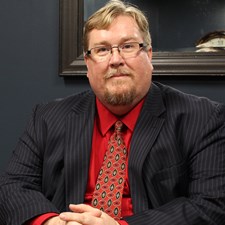This week we celebrate the creation of the U.S. Constitution. On September 17th, 1787 thirty-nine men signed their names to the founding document of our system of government. Two hundred and thirty years later, we celebrate the Constitution as the oldest written constitution still in operation in the entire world. It’s endurance as a unifying political icon should be celebrated. However, the cost of this endurance is the very thing the Framer’s thought they were instituting – self-government. In 2017, the Constitution, rather than being a document that reminds us of the power of the people to create a government on a “foundation of such principles and organizing its powers in such form, as to them shall seem most likely to effect their Safety and Happiness,” as the Declaration of Independence declares, is a massive obstacle to accomplishing that very objective.
Today, the Constitution is viewed as nearly untouchable – as though it is Holy Scripture written by the very hand of God. We have amended the document twenty-seven times. However, it has been twenty-five years since the last amendment was ratified. While the need for additional changes has been identified by those on the left and the right of the political spectrum, they have rarely been able to successfully complete the constitutional obstacle course required for ratification. Both elected officials and the public seem resistant to wholesale changes to this document.
However, the Framers of the Constitution would have endorsed these efforts. For them, the process – the act of the people, through their chosen delegates, creating the government that best suited their needs – was equally, if not more important than the actual document itself. They thought they were creating a model for government by consent of the people. However, we have allowed the document to block a primary path to true self-government. Fears of a “runaway convention” in which proposals that would reduce civil liberties or roll back gains made in civil rights could be passed and ratified by the states prevent action.
Yet we fail to see that this restraint on self-government has resulted in much of what plagues our democratic republic today. A general lack of knowledge regarding the Constitution has been identified by public opinion research, major national publications, and late-night talk shows. Low voter turnout has also called into question the legitimacy of our governing institutions. But why should we be surprised at these problems when the people do not view the government they live under as truly their own? They had no say in its formation. They were allowed no input into designing its institutions and processes. They were given no voice as to its priorities or powers. The longer we have gone under the current Constitution, the less attached the people feel to it and the less constrained are our politicians by it.
If we want to truly honor the Constitution and the men who created it 230 years ago, it will not be through trying to preserve it from alteration. Rather, we will honor it and its creators by fully embracing the act of self-government and taking the leap of faith they took in 1787. We will renew our ownership of this government by holding another convention to examine what principles of government will “secure the Blessings of Liberty to ourselves and our Posterity.” The Constitution was to be a vehicle for self-government, not a barrier to it. It is high time we rev the engine and press on the accelerator.
James Davenport is an award-winning professor of Political Science at Rose State College.




This is nuts!!
Hogwash! Restoring the Liberties fought and died for from our founding to present day. Beginning with the dissolution of the Dept. of Homeland Security, a too large and duplicative agency that led to such foolish things as the Patriot Act. Another Liberty sucking machine of big government, which was one of the greatest fears of our founders!
I would expect that a professor of Political Science would call our form of government what it is, a Constitutional Republic, not a democratic republic. He appears to be happy denigrating our Constitution, instead of appreciating the genius of our founders.